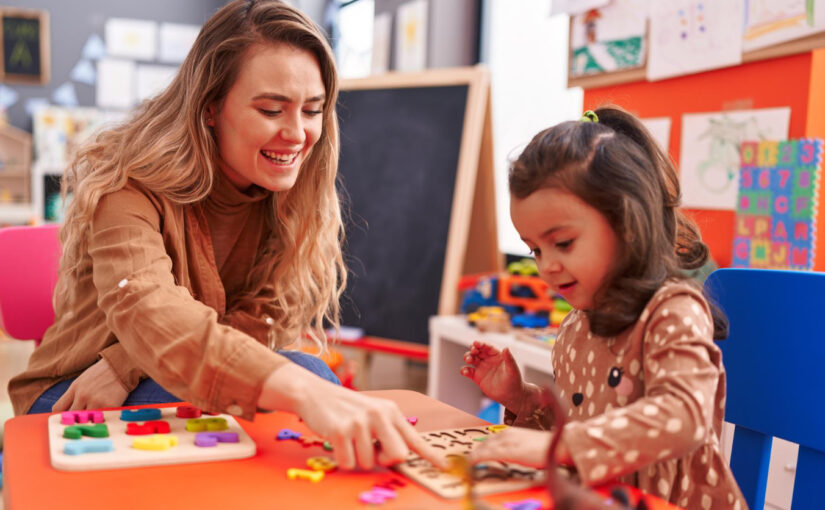Early childhood professionals need to have a clear understanding of the attributes, attitudes, and abilities needed in their profession. They need to understand the various facets of their complex and interrelated roles. In addition, they also need to develop evaluation and judgment skills to make good decisions in classroom situations. That is why teachers need to join a pre-primary teacher training course online.
A Teacher Is An Instructional Leader
The role of teachers in instructing students has never been as prominent and vital as it currently is. As instructional leaders, teachers plan, guide, teach, and assess learning. Formalized learning standards that are federally and state-mandated, provide the necessary framework for curriculum and assessment.
In the ever-changing landscape of early childhood education, inclusive classrooms are becoming more common. The fields of early childhood education and early childhood unique education merge which necessitates the need for educators to have the skills and knowledge to teach all children. A PPTTC course online helps instructional leaders build collaborative relationships that will enhance the learning of inclusive populations of children.
A Teacher Is A Nurturer
Early childhood educators are encouraged to nurture children with touch and physical affection. Hugging, holding, and encouraging a child is necessary for the psychological and cognitive growth of children. It also enables children to learn about appropriate safe touch and helps them differentiate it from inappropriate and unsafe touch.
NTT training online provides early childhood professionals with the necessary skills to nurture children and help them establish affectionate and caring relationships. Forming strong, supportive attachments helps children in the future when they move into the wider world beyond their immediate family. Educators help children understand the people in their lives matter the most.
Teachers As Communicators
Responsive teachers make use of both verbal and non-verbal communication which displays respect and affection for children. Verbal communication includes asking open-ended questions, giving directions, direct instructions, and conversations. Non-verbal communication is important for communicating with young children. In the same way, smiling, hugging, holding, eye contact, and kneeling at children are models of respect and warm non-verbal communication.
Paying special attention to children’s concerns and conversations as well as comforting and reassuring them helps in establishing trusting relationships. Engaging in this type of reassurance daily improves children’s trust and confidence in the teacher.
Teachers Are Facilitators
Through an online NTT course, teachers learn to act as facilitators. Young children learn through self-expression, problem-solving, exploration, imaginative play, testing hypotheses, and inventing. Teachers support a child’s learning by providing an engaging and motivating environment. These environments hold rich resources, planned activities, ample time to explore, and a balance of teacher and child-initiated learning.
Self-expression is nurtured through individual exploration and consolidation of learning. Storytelling and role-playing intertwined in imaginative play also encourage self-expression. Curiosity, risk-taking, and creative thinking flourish in an environment where children are encouraged to solve problems, explore different possibilities, and self-select activities.
Risk is an important part of the play. It allows children to challenge themselves, solve problems, and think creatively. Teachers can facilitate children’s creative thought processes in well-planned and organized environments through well-crafted lessons based on teacher and student curriculum ideas.
Teachers Give Parents The Support They Need
Parenting is hard work. Preschools with loving and competent professionals can offer parents the space they need to do their work by freeing up time in their schedules. It is well-known that parents who are well-rested and can attend to their own needs are more patient and present to their children when together. Teachers also provide a safe and encouraging space for children outside the home which can be valuable for giving both children and parents time apart from each other.
National Academy is one of the best online Montessori teacher training institutes in India. For the last 40 years, we have been establishing new benchmarks in NTT training online.
We provide a variety of diploma and certificate courses like Pre-primary teacher training, early childhood care, and education, learning disability, psychological counseling, phonics, grammar, and storytelling in both online and offline mode to give a boost to your teaching career.
We believe a teacher is the creator of society. That is why we take our duties seriously while training teachers. Our online NTT course inculcates teachers not only with new-age teaching skills but also with a sense of responsibility and dedication which is what a career like teaching requires. We provide you with all the skills to take your teaching career to the next level.
With the increase in competition, there is a rise in expectations for excellence in almost every domain. Our team of experts constantly strives to add value to our PPTTC course online to prepare teachers for a high-performance delivery in an ever-changing industry.






